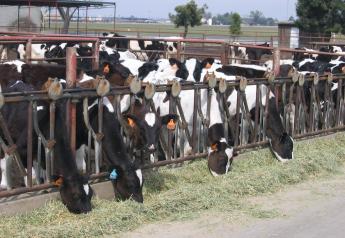Evening Report | Sept. 15, 2021

Check our advice monitor on ProFarmer.com for updates to our marketing plan.
Unexpected rise in NOPA’s August crush… Members of the National Oilseeds Processors Association (NOPA) crushed 158.84 million bu. of soybeans last month, which topped all estimates in a Reuters survey of analysts and was 4.66 million bu. higher than their average projection. The August crush was up 2.4% from July but still 3.8% under year-ago levels. While this brought an end to a half-year streak of lower-than-expected NOPA crush tallies, the figure still represented a substantial slowdown in the crush pace from monthly records set the first five months of the crop year.
The NOPA crush for August implies a full crush of around 168.0 million bu. for the month. Thus, today’s data signals USDA’s 2.140 billion bu. crush forecast for the 2020-21 marketing year that ended Aug. 31 is likely to be realized.
Analysts surveyed by Reuters had expected soyoil stocks to slide 62 million lbs. during August. But given unexpected month-to-month rise in crush, soyoil stocks climbed 51 million lbs. during the month to 1.668 billion lbs., according to NOPA. Implied use was also weaker than expected, contributing to higher stocks.
Soymeal exports climbed 19.1% during August to 856,619 MT, NOPA reported. That represented a 13.5% rise vs. year-ago.
China scrambling to cover near-term soybean needs… Exports out of the U.S. Gulf remain disrupted as facilities work to repair damage from Hurricane Ida and power is slowly restored. Some business has been diverted to the Pacific Northwest (PNW), but that region of the country is also struggling to secure needed supplies, trading sources told AgriCensus. “There is no more soybean in the U.S. PNW ports for October shipment. Only a few are left for November and December loading,” a China-based trading manager in grain told AgriCensus.
Chinese crushers are said to be scrambling to secure October shipments of Brazilian soybeans to meet near-term needs, with six cargoes reportedly booked for delivery next month at the start of the week. Therefore, it’s not surprising that USDA announced China had canceled 132,000 MT in U.S. soybean sales for 2021-22 and “unknown” had canceled 196,000 MT in net sales for 2021-22.
China is expected to accelerate soybean purchases for spot needs as soon as ports resume operations, and some note that if logistics improve, there could be some washouts of deals out of the PNW or Brazil and rebooked through the U.S. Gulf, according to trade sources cited by AgriCensus.
Russian winter wheat acres expected to dip vs. last year’s record… Russian farmers are expected to sow fewer acres to winter wheat this autumn compared with record levels a year ago due to unfavorable weather conditions (including recent dryness), a switch to oilseeds in some regions and concerns about the country's grain export tax, Reuters reports, citing analysts. In general, they expect around a 500,000-hectare to 1-million-hectare drop, or a decline of 1.24 million to 2.47 million acres, compared with the 2020 growing season.
Winter wheat typically makes up around 70% of the country’s wheat crop. Planting of the crop is underway, and as of Sept. 14, producers have sown 7.8 million hectares (19.3 million acres), which lags year-ago by about 400,000 hectares.
Reuters: Chinese importers lower import quality requirements for French wheat… Chinese buyers have agreed to ease test weight quality requirements for coming shipments of French wheat from a 77 kilogram per hectoliter minimum to 75 kgs. (165 lbs.) per hectoliter, Reuters says in an exclusive report, citing traders in Europe and Asia. Heavy late-season rains compromised the quality of France’s wheat crop, resulting in China and other major markets for French wheat like Algeria and Saudi Arabia lowering test weight requirements. China has also been working to rebuild grain stocks and use more wheat in feed, boosting its purchases of French wheat the past two years.
India extends window for imports of GM soymeal and pulses… The Indian government has pushed back the arrival deadline regarding its allowance of genetically modified (GM) soymeal and pulses to Jan. 31, reports the news agency Hindu Business Line. In August, government officials decided to permit imports of GM soymeal for the first time to aid poultry producers, but such imports were initially only permitted through Oct. 31. The government also expanded the number of ports authorized to import GM soymeal and pulses earlier this month.
Is energy price spike in Europe a signal for the U.S.?... Energy prices continue to surge in Europe, leading to two energy suppliers that service more than half a million customers in the U.K. to go out of business. Utility Point and People’s Energy announced Tuesday they would stop operating — the latest of recent failures as power and gas prices climb to record highs. EU climate chief Frans Timmermans said the surge in prices must not undermine the resolve to cut emissions and should instead become a trigger to speed up the green transition.
Governments are already acting: Spain moved to ease the cost of energy bills, France is considering it and Greece has announced a subsidy for all households. Energy price records are being broken even in the mild weather and are fueling concerns about inflation. In the U.K., natural gas prices are almost triple their level since the start of the year, and an increase of 70% since early August alone. That is also stoking record electricity prices, as gas is key for power generation.
Europe has been phasing out coal plants in recent years, limiting the opportunity to switch fuels when prices rise. Record carbon prices have also made fuel swaps less attractive because coal emits more carbon dioxide when burnt. Russia is frequently cited as another reason for the energy price surge because it is sending less gas to Europe. Reasons include Russia’s need to refill its own storage to suspicions that it is trying to pressure European governments, including Germany, to approve the start-up of the highly controversial Nord Stream 2 gas pipeline.
Washington Post says Vilsack is ‘become something of a progressive favorite’… Progressives (far left Democrats) weren’t excited when President Joe Biden announced he’d chosen Tom Vilsack as his Agriculture secretary. The Revolving Door Project called him “the wrong choice to lead USDA.” And groups representing Black farmers criticized his record on civil rights during his eight years as agriculture secretary in the Obama administration. So it’s a little surprising that Vilsack is now something of a progressive favorite.
“We’re thrilled — surprisingly so, I have to admit,” said Joe Maxwell, the president of the Family Farm Action Alliance, which criticized the choice of Vilsack in December. “But we’re thrilled that he’s the secretary of the United States Department of Agriculture.”
Maxwell applauded Vilsack’s support for debt relief for Black and other historically disadvantaged farmers and his efforts to fight consolidation in the industry. And he praised Vilsack’s efforts to diversify the department along with progressive hires such as Andy Green, a Center for American Progress veteran who’s now Vilsack’s senior adviser for fair and competitive markets.
The article discusses a recent Vilsack op-ed in the Wall Street Journal in which he tried to defend the Biden administration’s push to alter estate tax policy on the ag sector.






